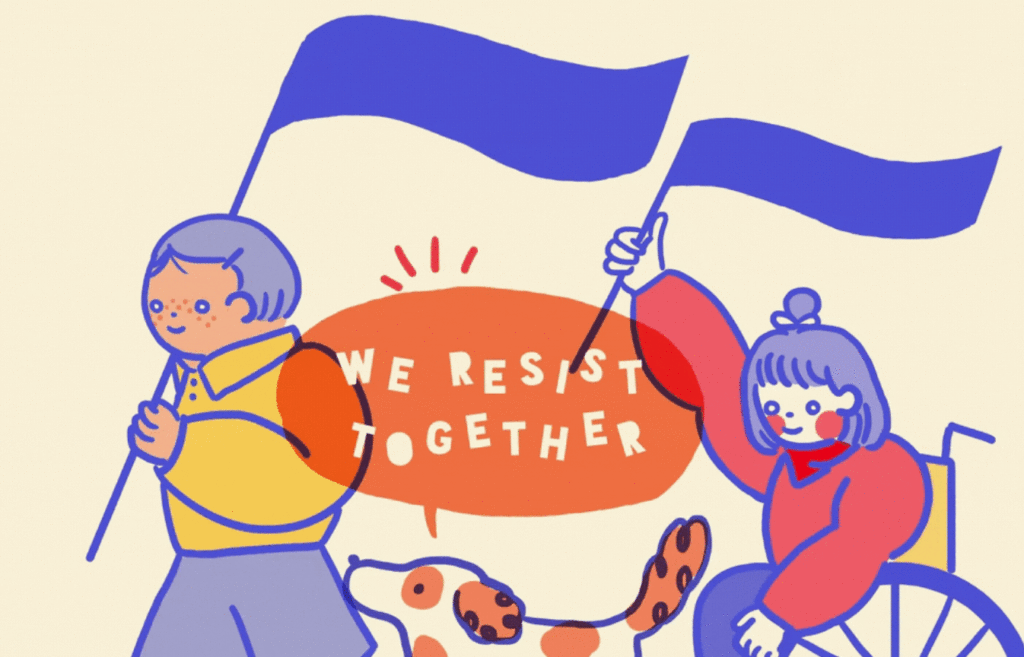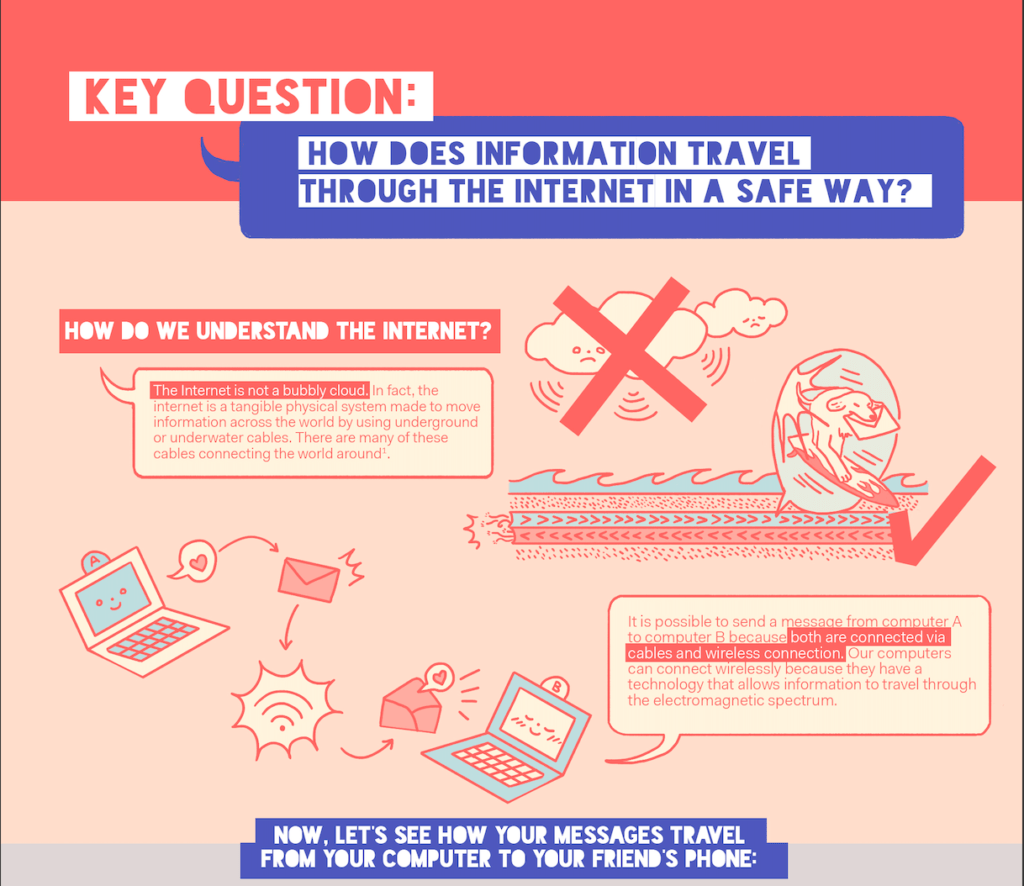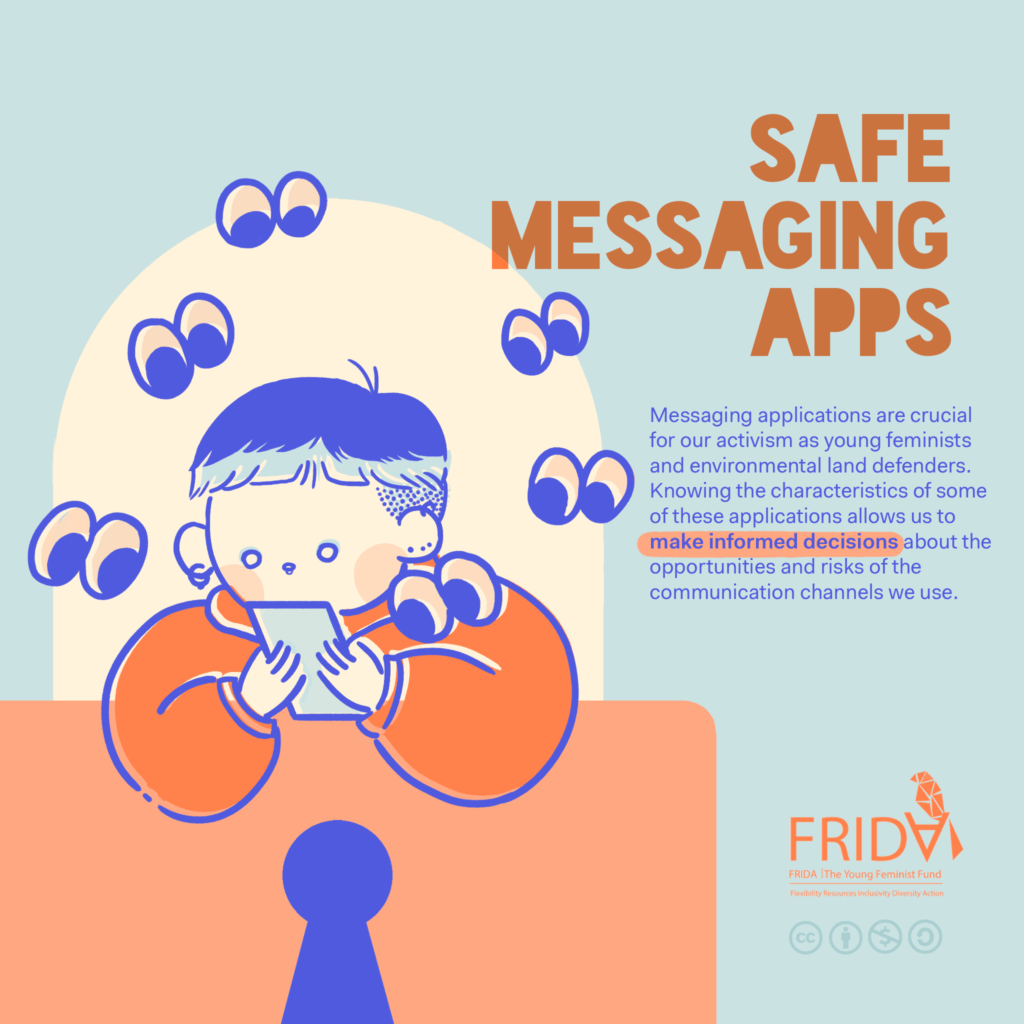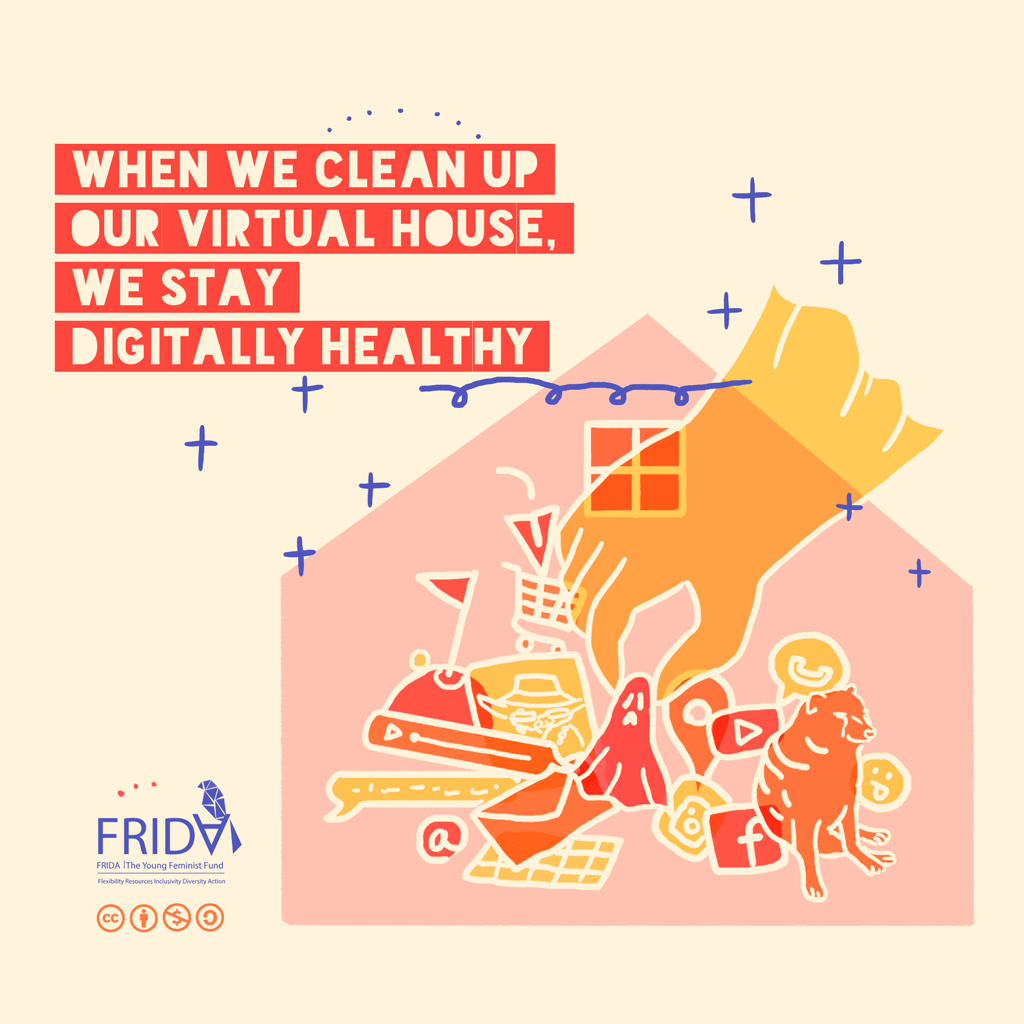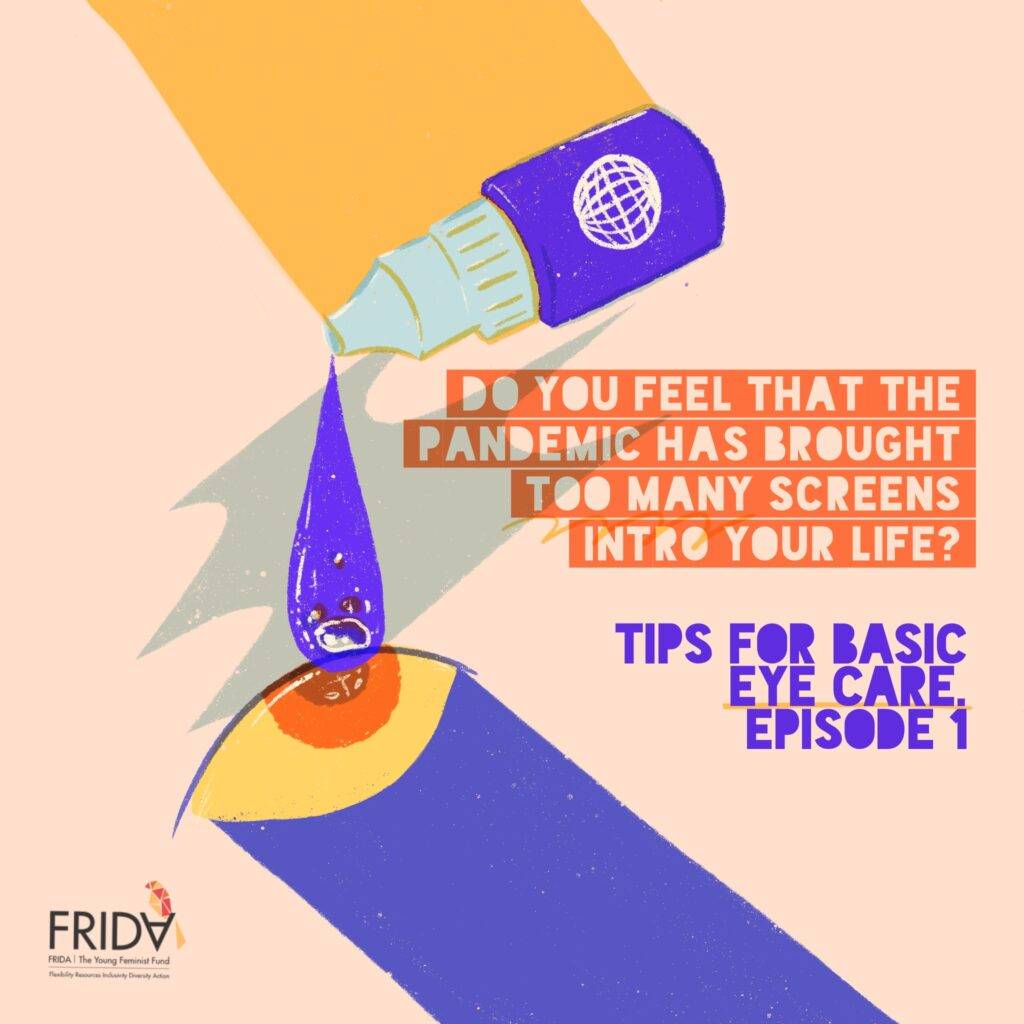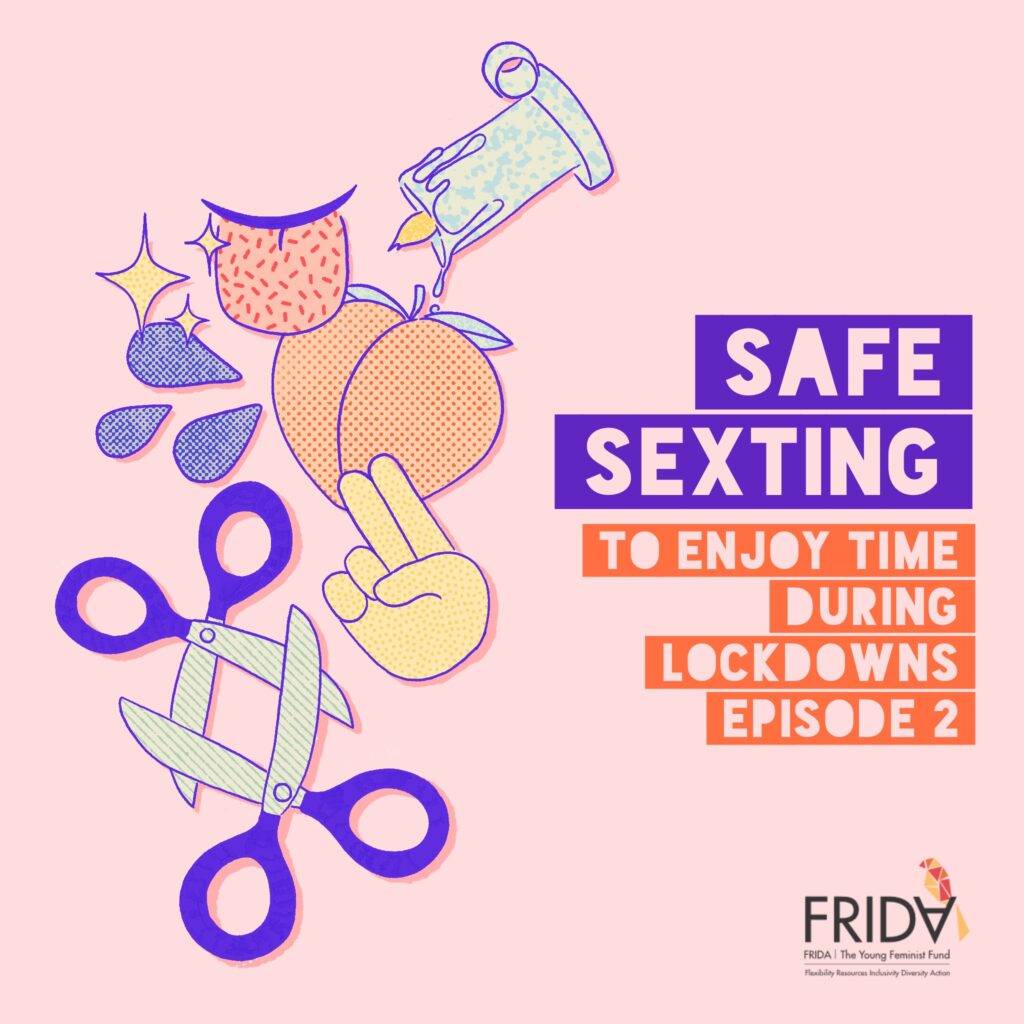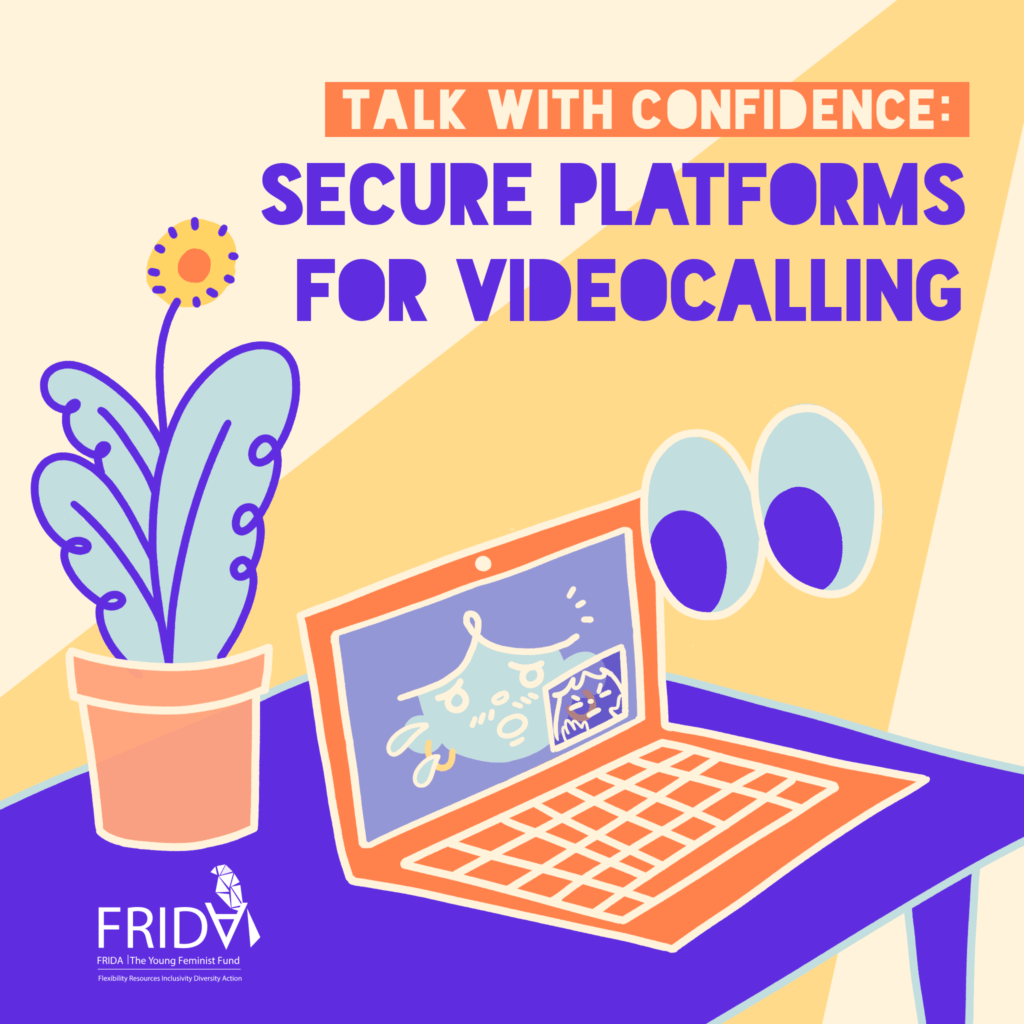Digital Care
We believe in Holistic Security – understanding that care and safety are part
of a mutual, collective and a sustained practice.
As digital tools and platforms become essential to young feminist organisers amongst lockdowns and restrictions to congregate, digital security and literacy become ever more pressing. At FRIDA we know how important it is to feel safe as we work towards feminists futures. While the internet is currently giving us new spaces of connection, it still remains an aggressive place where our information is often not safe from attacks and corporate and government interests.
This year has been particularly difficult for young feminists working for environmental rights and land defense in their territories. Global Witness describes the specific types of threats lived by social and environmental defenders during the health crisis showing evidence of ¨increased surveillance and intimidation of defenders, under the excuse of emergency powers¨ in places from Colombia to Niger, to Indonesia, and the Philippines.
This is a tough reality that might get more severe as corporate power rises with the backup of fundamentalist governments. To support and prepare activists on the ground with useful tools, at FRIDA we are developing a series of resources that focus on digital care practices and tools that can support young feminists organizers during this period. These resources cover topics such as the basic internet infrastructure, safe messaging applications, digital care for your devices, safe sexting and eye care.
For this reason we created a series of contents that focus on easy and useful digital care practices and tools that can support you during this period. We are aware that this is a particularly difficult moment for many young feminists who are working in the defense of human and environmental rights in their territories. Because of this, we decided to put an extra emphasis on phone and off-internet digital security.
The content of this guides are based on the information developed by organizations that work in digital rights and by ciber-hack feminist collectives. We thank all of them for their efforts to make the internet and technologies safe spaces that can help us to continue conspiring together.
